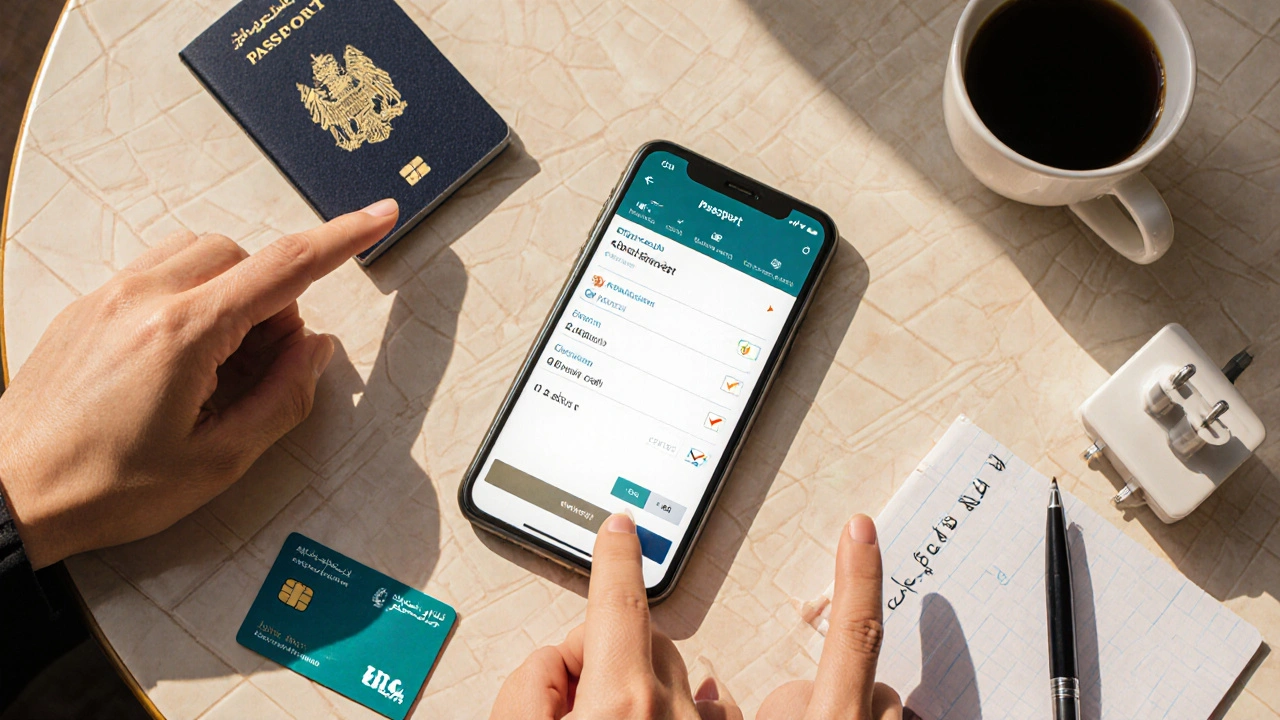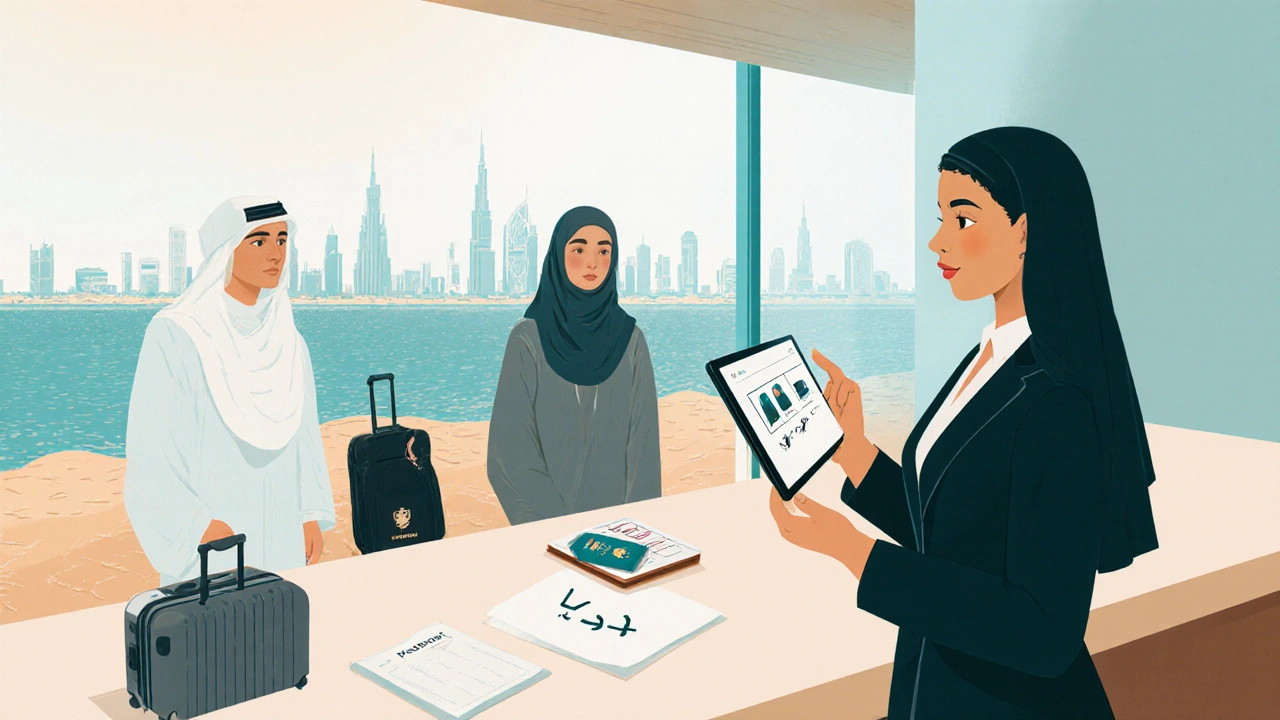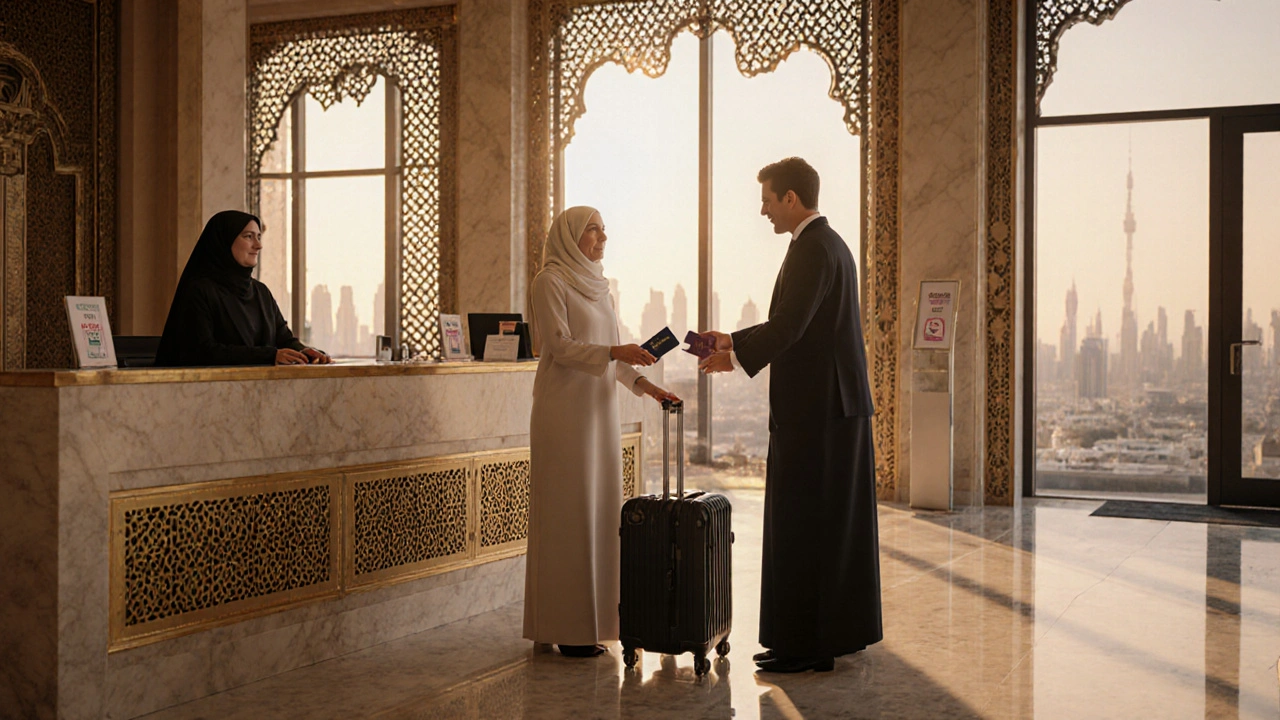You’re booking a getaway and wondering, “Can I share a hotel room with my girlfriend without drama?” Short answer: in most places, yes. The long answer depends on the country’s laws, the hotel’s policy, your ages, and how you handle check-in. A few conversations and smart choices save stress.
When we say hotel, we’re talking about: Hotel - a commercial accommodation that rents rooms to guests under a set of house rules (check-in, ID, payment, security, privacy) Hotel accommodation. Hotels are private businesses. Most simply require valid ID, a credit card, and that you follow the rules. Some countries add legal layers-especially for unmarried or same‑sex couples.
Quick take
- Most international hotels allow adult couples to share a room, married or not.
- ID checks are standard. Some places require both guests to show ID; others only the booker.
- Conservative countries may add rules. In a few cases, locals and foreigners face different requirements.
- Book the right property, use clear wording (“1 room, 1 bed, 2 adults”), and keep a backup plan.
- Same‑sex couples: choose global chains and big-city hotels; check anti-discrimination and local laws.
What actually decides if you can share a room?
Three things matter: law, hotel policy, and proof of identity.
- Law: Some countries regulate cohabitation or require marriage proof for locals. Many don’t. Local police practices also matter.
- Hotel policy: Chains tend to be consistent and guest-friendly. Independent hotels sometimes follow local norms more strictly.
- Identity: Expect to show government ID. A Passport - an official travel document used as primary identification Travel passport is ideal. In your home country, a driver’s license works.
Age also matters. Many hotels require the primary guest to meet the local Age of majority - the legal threshold of adulthood, commonly 18 but sometimes 21 for hotel check-in Legal adult age. In the U.S., 21 is common. In Europe and much of Asia, 18 is enough.
Law vs. hotel policy: how they interact
Even if a country is permissive, a hotel can still refuse a booking. Private businesses set house rules as long as they don’t break anti-discrimination laws. Where the law is strict, hotels tend to follow it closely.
Data privacy is part of the puzzle. Many countries have Privacy law - rules governing how hotels collect and share guest identity data with authorities Data protection law. In some destinations, hotels must report guest details to local police. That’s why both of you may need to show ID at check‑in.
Country snapshots you actually need (2025)
Policies evolve. Here are high-level notes to guide decisions. Always confirm with the specific hotel.
| Country/Region | Unmarried different-sex couples | Unmarried same-sex couples | Notes for travelers |
|---|---|---|---|
| USA/Canada | Generally allowed | Generally allowed | Primary guest often must be 21 (US). Both IDs sometimes requested. |
| UK/EU | Allowed | Allowed | 18+ check-in is common. Anti-discrimination laws are strong. |
| United Arab Emirates | Allowed in practice | Varies by property | 2020 legal reforms eased cohabitation rules; big-city hotels are straightforward. |
| Saudi Arabia | Foreigners: often allowed | Discreet, varies | Since 2019, hotels can host foreign unmarried couples; locals may face stricter rules. |
| Qatar | Allowed at many hotels | Discreet, varies | Tourism-focused properties tend to be pragmatic; confirm in advance. |
| India | Legal; hotel-dependent | Varies by city and hotel | No law bans it; some hotels refuse. Metro areas and chains are smoother. |
| Indonesia (Bali) | Generally allowed | Varies, discreet | Tourist areas are liberal; rural and religious provinces stricter. |
| Indonesia (Aceh) | Restricted | Restricted | Sharia-based rules; avoid unless married. |
| Malaysia | Allowed at many hotels | Varies | Urban chains are practical; local morality enforcement varies by state. |
| Morocco/Egypt | Foreigners: often allowed | Discreet, varies | Some hotels require marriage proof for locals; big hotels accept tourists. |
| Japan/Korea | Allowed | Allowed quietly | Business hotels are efficient; IDs at check-in are normal. |
| Latin America | Generally allowed | Generally allowed | IDs and guest registration are standard; age rules vary. |
Context for a few places often asked about:
- United Arab Emirates - a Gulf country that relaxed cohabitation rules in 2020 reforms; hotels in Dubai and Abu Dhabi commonly host unmarried couples UAE.
- Saudi Arabia - introduced tourist visas in 2019 and allowed hotels to accommodate foreign unmarried couples; local citizens may see stricter enforcement KSA.
- India - no national law forbids unmarried couples sharing rooms; acceptance varies by hotel, with metros and chains more welcoming Republic of India.
- Indonesia - tourist regions like Bali are relaxed, while Aceh applies religious bylaws restricting cohabitation Republic of Indonesia.
How to pick the right hotel (and wording to use)
- Filter for chain or 4-5 star hotels in city centers. Chains usually have clear policies and trained staff.
- Read recent guest reviews. Look for mentions of couples and check-in experience.
- Check house rules on the booking page. Scan for “only married couples,” “local ID restrictions,” or “no visitors.”
- Book “2 adults, 1 bed” if you want certainty. This sets the expectation in the reservation system.
- If unsure, message the hotel: “We’re two adults traveling together. Any documents required at check-in besides government IDs?”
If you expect friction, pick a mid-to-large property near business districts or tourist hubs. They deal with international guests daily and focus on smooth check-ins.
Check-in playbook: avoid awkward surprises
Here’s the simple flow that works almost everywhere:
- Both carry government ID. A passport is best for international trips.
- Have a credit card that matches the primary guest’s ID.
- State calmly: “We have a booking for two adults.” No extra story needed.
- If asked for documents, present IDs. If a marriage certificate is requested (rare for tourists), ask politely: “Is this a legal requirement or hotel policy?”
- If they insist on something you don’t have, ask for a manager and request alternatives (two rooms, name order change, refund/waiver, or cancel without penalty).
Some hotels charge for an “extra guest” if you booked for one and arrive as two. If you plan to meet up later, add your partner’s name to the reservation ahead of time.
Same-sex couples: practical safety and comfort
Acceptance differs by place and by property. To stack the odds in your favor:
- Choose international chains and business hotels in big cities.
- Book a room with one bed explicitly. If the platform only shows “two twins,” email to request one large bed.
- Arrive together and present IDs confidently. Avoid over-explaining.
- Know the local climate. In very conservative areas, being discreet in public spaces reduces attention.
For context, LGBT rights - legal protections and restrictions on sexual orientation and gender identity, which vary widely by country LGBTQ rights range from strong anti-discrimination laws (e.g., much of Europe) to criminalization (parts of the Middle East and Africa). Hotel staff usually aim to avoid conflict, but knowing the law helps you choose wisely.
Real-world examples from recent years
- Dubai weekend: Couples routinely share rooms in city hotels. You’ll show passports, pay a tourism tax, and that’s it. Beach resorts and downtown towers are used to it.
- New Delhi city break: Legal to share, but some independent hotels refuse unmarried couples. Chains near Connaught Place or Aerocity handle it smoothly.
- Bali surf trip: Hotels and guesthouses welcome couples. In rural or religiously strict provinces (e.g., Aceh), avoid sharing unless married.
- London or New York: No issue. Focus on age rules (18 vs 21) and deposit policies.
What hotels actually care about
- Security: Registered, documented guests only. That’s why they want IDs for everyone staying overnight.
- Payment: Valid card, name match, and deposit for incidentals.
- Quiet and conduct: No noise complaints, no illegal activity.
- Local compliance: If the law requires guest reporting, they’ll follow it.
None of this is about judging your relationship. It’s about risk management and compliance.

Common friction points (and fixes)
- “We only host married couples.” Ask for a written policy or manager. Offer to book two beds or two rooms if needed. Decide if it’s worth it or move to a different property.
- “Second guest must show ID.” This is normal in many places. Head to reception together.
- “Local nationals need a marriage certificate.” In Morocco, Egypt, and parts of South Asia, this can apply to locals more than foreign tourists. If you’re a local couple, call ahead.
- “Visitor policy” confusion. Many hotels ban unregistered visitors after a certain hour. If your partner will arrive later, add them to the booking beforehand.
Is it legal where I’m going? Fast-law cues
Use these cues to read a destination quickly:
- Tourism-forward cities are permissive: Dubai, Doha, Abu Dhabi, Bali, Bangkok, Singapore, London, Paris, New York.
- Religious provinces or rural areas are stricter: Aceh (Indonesia) is a standout example for cohabitation rules.
- Big chains lean guest-first: Marriott, Hilton, Accor, IHG, Hyatt usually follow a consistent global standard.
- Local boutique hotels mirror local norms: expect more questions, especially for locals.
Travel checklist: share a room without stress
- Reservation: “2 adults, 1 bed.” Put both names on the booking.
- Docs: Passports/IDs for both, credit card matching the lead guest.
- Hotel choice: chain or business hotel in a central area.
- Message: “Any documents needed besides ID?” Save the reply.
- Backup: a second hotel nearby with free cancellation.
- Etiquette: keep public displays modest where norms are conservative.
Why you see different rules for locals vs. tourists
Some countries tolerate tourists under tourism policy, while holding locals to stricter standards. That’s why a foreign couple may check in easily, but a local couple is asked for a marriage certificate. It isn’t fair, but it’s common. If you’re a local couple traveling domestically in a conservative region, call ahead and choose a hotel that explicitly welcomes unmarried couples.
Age, consent, and ethics
Hotels may care about age beyond the legal minimum. If the property requires the lead guest to be 21, that rule applies regardless of local adulthood at 18. Staff also watch for signs of coercion. If anything looks off, they can refuse service and call authorities. That’s not personal-it’s safeguarding.
Paperwork you might be asked for (rare but possible)
- Both IDs, photocopied for records.
- Marriage certificate (mainly requested for local nationals in conservative countries).
- Arrival card/police registration number where required by law.
- Credit card and a cash deposit for extras.
What to say at booking and at the desk
Clear, simple wording works best:
- Booking note: “Two adults, one large bed. Both will present ID at check-in.”
- Pre-arrival message: “Please confirm your guest policy for adult couples.”
- At the desk: “We’re both staying. Here are our IDs.”
Stay calm and polite. Staff often just follow a checklist. If you need to escalate, ask for a manager and the written policy.
Specific legal pointers travelers ask about
- UAE: Major reforms in late 2020 decriminalized consensual relationships for adults; large hotels in Dubai and Abu Dhabi host unmarried couples daily.
- Saudi Arabia: 2019 tourism rules let hotels host foreign unmarried couples; enforcement for locals can differ by context.
- India: Courts have affirmed privacy rights and there’s no law against unmarried couples sharing rooms; resistance is mostly cultural at select hotels.
- Indonesia: National laws are nuanced; Aceh applies religious bylaws. Bali remains tourist-friendly.
None of this replaces formal legal advice, but it’s the on-the-ground reality most travelers see.
Bottom line on wording: yes, you can “sleep with your girlfriend” in a hotel
If what you mean is “share a room and a bed,” the answer is usually yes if you’re adults with valid IDs, at a hotel that welcomes couples, in a city accustomed to international guests. If you mean sexual activity, keep it private and consensual, and follow hotel conduct rules. Book smart, carry ID, and you’ll be fine. For search clarity: you can book a hotel with girlfriend in most destinations without issue.

Frequently Asked Questions
Do hotels require a marriage certificate for couples?
Rarely for tourists. Some conservative countries or small independent hotels may ask locals for proof of marriage. Large international chains almost never ask unless local law says so. If someone requests it, ask whether it’s a legal requirement or just their policy, and decide if you want to stay.
Will both of us need to show ID at check-in?
In many countries, yes. Hotels often register every overnight guest for safety and legal reporting. Bring passports or government IDs for both of you, and keep digital copies as backup. If only one ID is requested, some hotels will still add your partner’s name to the registration for security.
Are same-sex couples allowed to share a hotel room?
In many countries, yes-especially at international chains and in big cities. In places with restrictive laws, book hotels known for hosting international travelers, arrive together, and keep a low profile in public areas. Always check local laws and recent traveler reviews before you go.
What if the hotel tries to charge for an “extra guest”?
Extra-guest fees are common if you booked for one and arrive as two. Avoid this by booking for two adults from the start, or update the reservation before check-in. If a fee appears unexpectedly, show your booking confirmation and ask them to match it.
Can the hotel refuse us even if it’s legal in the country?
Yes. Private businesses can set house rules within the law. If a hotel refuses, ask for a manager and a copy of the policy. Decide whether to accept an alternative (two beds, two rooms) or move to a more welcoming property. Keeping a refundable backup booking helps.
How old do we have to be to share a room?
You need to meet the property’s minimum check-in age, which is often 18 internationally and 21 in parts of the U.S. The lead guest usually must meet the age rule and present a credit card. Some hotels require all guests to be adults to share a single bed-check the policy.
Is it safe to say we’re a couple when messaging the hotel?
Yes, but keep it simple: “Two adults, one bed.” In conservative areas, you can ask neutrally about documents needed at check-in. If the reply sounds restrictive, switch to a different hotel before your free-cancellation window closes.
What should we do if things feel uncomfortable at the desk?
Take a breath. Ask for a manager, restate your booking (two adults, one bed), and present IDs. Request the written policy if they claim a rule you didn’t see online. If it’s not workable, ask to cancel without penalty and head to your backup hotel.
Final note on paperwork you may hear about: a “marriage certificate.” In most tourist contexts, it won’t come up-especially at international chains. If you’re traveling domestically in a conservative region as a local couple, it’s worth calling ahead so you don’t waste time at the desk.
